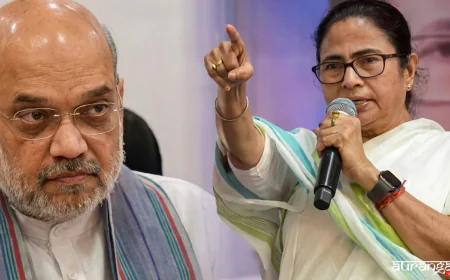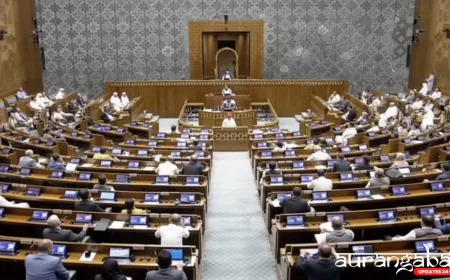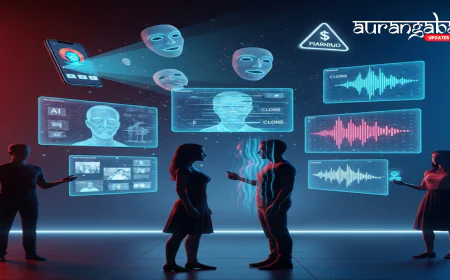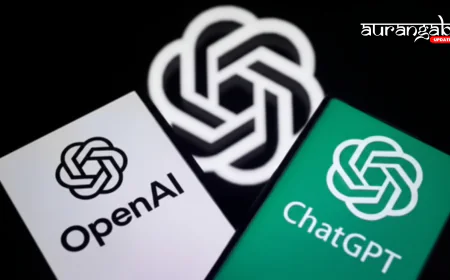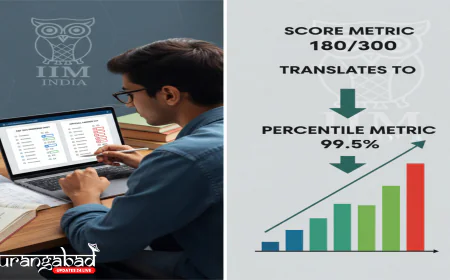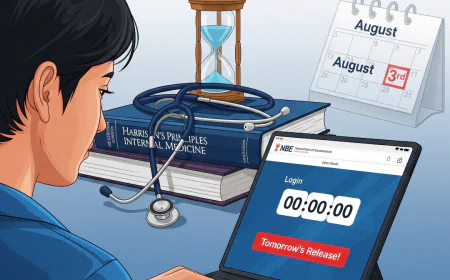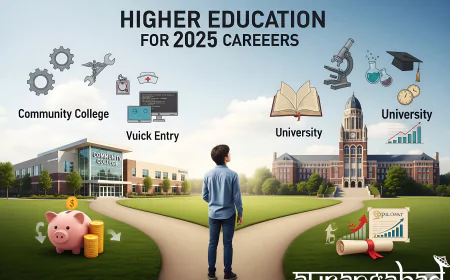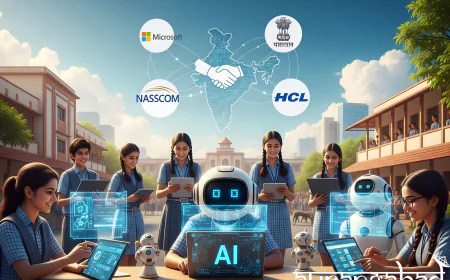Revolutionizing Education: Microsoft, NASSCOM, HCL Partner to Launch AI Curriculum for Indian Schools (Classes 6-12)
In a landmark collaboration, the Union Skill Development Ministry, along with technology giants Microsoft, NASSCOM, and HCL, has launched the "Skill for AI Readiness" course for students in Classes 6 to 12 across India. This pioneering initiative aims to equip young learners in both urban and rural areas with foundational Artificial Intelligence (AI) knowledge and skills, preparing them to lead in a rapidly evolving, AI-driven global landscape.
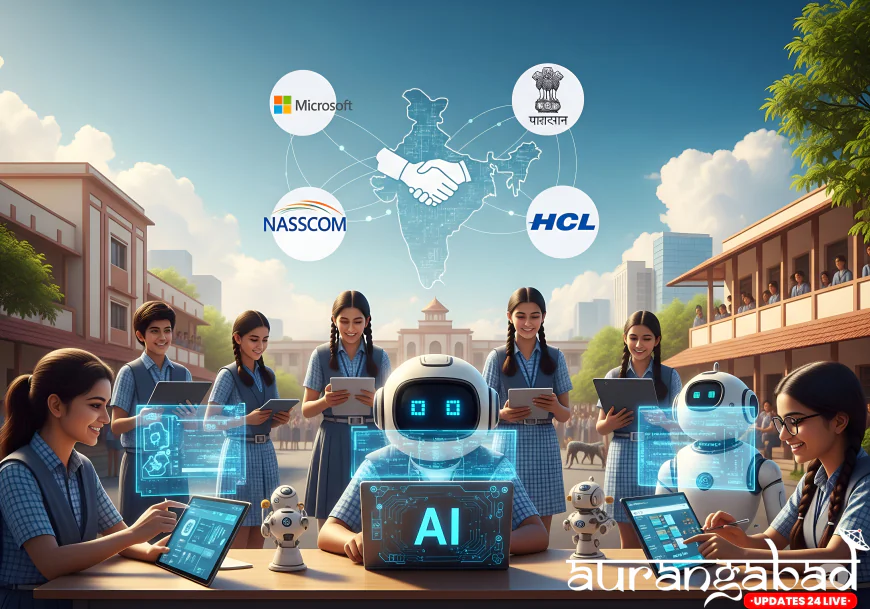
In a significant stride towards preparing its youth for the digital age, India has officially launched the "Skill for AI Readiness" course, an ambitious Artificial Intelligence (AI) curriculum designed for students from Classes 6 to 12. This groundbreaking initiative is the result of a powerful collaboration between the Union Skill Development Ministry and leading industry players: Microsoft, NASSCOM, and HCL. The program aims to democratize AI education, ensuring that students in both urban centers and remote rural areas receive essential training in this transformative technology.
A Collaborative Vision for AI Literacy
The formal launch of these AI modules took place on Tuesday at the "Skill India Mission, BharatSkillNext 2025" event in the national capital, spearheaded by Union Minister of State for Skill Development, Jayant Chaudhary. Emphasizing the nation's vision, Minister Chaudhary stated, "Our goal is to make school students proficient in AI so that they can lead the world." This sentiment underscores a strategic shift towards embedding future-ready skills directly into the foundational stages of education.
The core objective of "Skill for AI Readiness" is dual-pronged: to foster AI awareness and foundational skills among students from Class 6 to 12, and concurrently, to build AI literacy among educators. This comprehensive approach acknowledges that for AI education to be truly effective, teachers must also be adequately equipped and confident in delivering the curriculum.
Key Partners and Their Contributions
The initiative benefits immensely from the expertise and resources of its industry partners:
-
Microsoft: As a global technology leader, Microsoft brings its vast experience in AI development and educational tools to the table. Their involvement ensures that the curriculum is aligned with cutting-edge technological advancements and best practices in AI.
-
NASSCOM: The National Association of Software and Service Companies (NASSCOM) provides crucial industry insights and connects the academic learning with real-world applications. Their role is vital in ensuring that the skills imparted are relevant to industry demands and future job markets.
-
HCL: HCL, a prominent Indian IT services company, is expected to play a significant role in the implementation and outreach of the program, particularly in ensuring that the AI education reaches students in diverse geographical locations, including underserved rural areas.
This partnership highlights a growing recognition that preparing the next generation for an AI-driven world requires a concerted effort involving government policy, industry innovation, and educational outreach.
Curriculum Structure and Objectives
The AI curriculum has been meticulously designed by the National Council for Vocational Education and Training (NCVET). It comprises four distinct AI training modules: three tailored for students and one specifically for teachers. The primary objective is to provide students with a solid understanding of Artificial Intelligence from an early educational stage. The Ministry of Education believes that early exposure to AI will not only enhance students' technical capabilities but also enable them to perceive AI as an opportunity rather than a mere challenge.
The curriculum is expected to cover foundational concepts of AI, its applications, ethical considerations, and possibly basic programming or computational thinking skills relevant to AI. The modules are likely designed to be engaging and age-appropriate, fostering curiosity and critical thinking among young learners.
Registration Process and the Role of Apar ID
To participate in the training, students are required to register on the Skill India Digital Hub portal. A significant aspect of the registration process is the mandatory submission of an "Apar ID." This unique ID links to the student's academic information, ensuring a streamlined and integrated tracking of their educational journey and skill development. After logging in, students will proceed through the training modules and undergo an online assessment to evaluate their proficiency.
Certification and Credit System
Upon successful completion of the training, an automated certificate will be generated for the students. The data pertaining to the student's completion will be seamlessly transferred to the Skill India Digital Hub and the relevant awarding body. This structured certification process adds credibility to the program and provides students with tangible proof of their acquired AI skills.
Furthermore, the program integrates a credit system to acknowledge the effort and learning achieved by participants:
-
Students: Each module completed by students will add 0.5 credit points to their academic accounts. This credit system incentivizes participation and allows for formal recognition of their extra-curricular skill development.
-
Teachers: Educators who complete the comprehensive 45-hour training program will be awarded 1.5 credit points, recognizing their enhanced AI literacy and their crucial role in shaping the next generation.
Impact and Future Outlook for Indian Education
The launch of the "Skill for AI Readiness" program is a landmark event for India's educational landscape. It signifies a proactive approach to embracing technological advancements and integrating them into mainstream education. By equipping school students with AI skills, India aims to create a future workforce that is not only digitally literate but also capable of innovating and leading in the global AI revolution. This initiative aligns perfectly with India's broader vision of becoming a global technology hub and a leader in digital transformation.
The program's focus on both urban and rural students is particularly commendable, as it seeks to bridge the digital divide and ensure equitable access to cutting-edge education. As AI continues to reshape industries and societies worldwide, this foundational curriculum will empower Indian students to become creators, innovators, and responsible users of AI technology, rather than mere consumers. The collaborative effort of the government and industry stalwarts sets a powerful precedent for future public-private partnerships in education and skill development. This initiative is expected to play a pivotal role in shaping a generation that is truly "AI-ready" and capable of navigating the complexities and opportunities of the 21st century.















